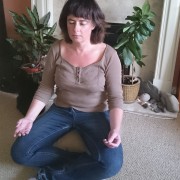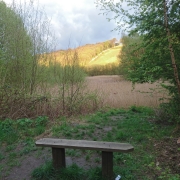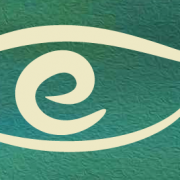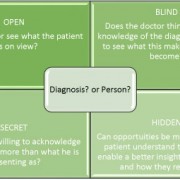Mindfulness Meditation for Novices; sharing personal experience- Part 1

I am a middle aged mum (and incidental a psychotherapist) who wants to spread the word about Mindfulness. However the media hype is something that might put any novice off. I hope to provide a fresh and personal perspective.
I am not a Buddhist, I hold no particular belief about God or Allah, or paganism. I do believe that our busy world has taken our attention away from what it is to be human; what it is to have an inner sense of being OK; a belief that we have the skills to live our lives as best we can; that we are all OK, even if we sometimes feel otherwise. I hope to inspire mindfulness meditation for novices who are curious but don’t know where to start or anxious about doing it wrong.
I would like to say that I agree with many of the supporters of Mindfulness, who feel there is potential to change how we respond to cultures different to our own, we often respond because of feelings of threat. We have a tendency to live our life based on fear. We make decisions to avoid harm or to minimise risk. I am not advocating risk, far from it, I notice how we have a strong need to plan, to stop bad things happening. We don’t believe we can manage should a bad thing happen; and we think, by planning, we can prevent the inevitable bad thing happening. I want to say, we are not fortune tellers! We have no idea what will happen in 2 weeks.
When was the last time you packed a spare pair of knickers because you anticipated wetting yourself laughing? It is far less often that we plan for unexpected joy.
We do not give ourselves space to experience the moment that is now. We allow the past or the future to disrupt now and that then generates feelings that may be difficult to contain.
We are in such a hurry to get on to the next task, to finish, to move on. To move on to what? When will it all be done?
Mindfulness Meditation for Novices-Wakening up to new possibilities
Mindfulness Meditation for Novices- Where to start?
Why do you want to do mindfulness meditation? This is not a miraculous cure for dissatisfaction, anxiety or depression. It will not change you directly, mindfulness is about being you, or awakening; being you in a way that is different, not preoccupied with thought.
You may have heard how mindfulness can help your mental health. Mental health issues may arise because we lose ourselves in thought, they become our reality, and the thoughts might trigger behaviours and we end up suffering in a way we do not like. Mindfulness can help and you can access some tailored support through your GP.
Or you may be intrigued, mindfulness meditation it is a new fashion after all. Great.
If you have already started reading or listening to meditations they often describe having an ‘intention’. This means; be clear why you are meditating. Identify your intention for yourself and also in relation to others. You will be reading this or considering Mindfulness because of something, a new possibility you see for yourself. It is worth thinking about this, either writing it down or telling someone. As your experience of mindfulness changes so will your understanding of the intentions you make, and these evolve. Mine are evolving all the time as I learn what ‘being awake’ feels like. ‘Being awake’ is the term often used by Mindfulness writers, I understand it to mean being conscious of every little moment, rather than being ‘in your head’ on ‘auto pilot’.
You may have those moments when you cannot remember locking the front door, or where you put your keys? These daily jobs are done on ‘auto pilot’ if we were totally conscious in these little activities things would not get lost.
We are often ‘lost in thought’ and the formal meditation practice is about noticing this, and providing us with an opportunity or even training to be able to separate ourselves from our thoughts.
Mindfulness Meditation for Novices-Trying to understand intentions
My understanding of Mindfulness is still very basic. There are some useful resources listed that might help you.
As a novice, I am finding it hard to understand ‘intentions’ as used for Mindfulness meditation. Here is my attempt at explaining intention, intentions are not goals or targets.
Initially I wanted to use Mindfulness in my work. So my intentions were about ‘learning’ and experiencing it. This was not the best way to start, as mindfulness is a lot more than a technique. I could compare it to learning to love, or learning to fear. Being Mindful is learning to be present, and ironically it is not until I started doing it, that I realised what this meant.
My early intentions were about changing me. This is a common intention to have, and it is not really what it all is about. It is more subtle. It might help comparing a goal with an intention, a goal might be ‘I want to be kinder’ whereas an intention is ‘I intend to give kindness’. As we become more ‘awake’, we notice our kindness and how kindness is already part of who we are, or we might notice others’ kindness and so learn what it is to be kind, or how it feels to experience kindness. We become more aware of kindness, and ‘kindness’ changes from being something that is ‘out there’ to strive for, to something ‘in your heart’ something already present; already available to give. I think this sounds exciting.
I suggest you give Mindfulness meditation a go. If you are suffering quite badly with a mental illness it is advisable to talk to your doctor first.
I share more of my journey in part 2
Resources
Books
- Wherever you go there you are by Jon Kabat-Zin (2004)
- Mindfulness: A practical guide to finding peace in a frantic world By Mark Williams and Danny Penman (2011)
For anyone interested in the science behind mindfulness-
- The practical neuroscience of Buddha’s Brain, happiness, love and wisdom. By Rick Hanson with Richard Mendius (2009)
Websites
- Mindfulness for Mental Wellbeing http://www.nhs.uk/conditions/stress-anxiety-depression/pages/mindfulness.aspx
- Be Mindful https://www.bemindfulonline.com/the-course/
- Oxford Mindfulness Centre http://www.oxfordmindfulness.org/train/
- Headspace https://www.headspace.com
- Rick Hanson resources https://www.rickhanson.net/










